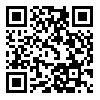BibTeX | RIS | EndNote | Medlars | ProCite | Reference Manager | RefWorks
Send citation to:
URL: http://hakim.tums.ac.ir/article-1-923-en.html
Habibi R1 * (MSc), Salehmoghadam AR2 (MSc), Talaei A3 (MD), Ebrahimzadeh S 4(MSc), Karimi Moneghi H1 (PhD)
1 Department of Medical and Surgical Nursing, School of Nursing and Midwifery,
Mashhad University of Medical Sciences, Mashhad, Iran
2 Department of Nursing Management, School of Nursing and Midwifery,
Mashhad University of Medical Sciences, Mashhad, Iran
3 Department of Psychology, School of Medicine, Mashhad University of Medical Sciences, Mashhad, Iran
4 School of Nursing and Midwifery, Mashhad University of Medical Sciences, Mashhad, Iran
Received: 8 Jun 2011, Accepted: 24 Jul 2011
Abstract
Introduction: Drug addiction is amongst c urrent crisis of the world including nuclear crisis, environmental degradation, poverty, and social crisis. Drug addiction is a major health problem in many countries worldwide. One of the most common characteristics of addicted individuals is low self-esteem. Self-esteem increases flexibility and reinforces progression of positive attitudes toward self-sufficiency. There are limited studies on non-medical treatment strategies for drug-users. The aim of the present study was to assess the effects of a family-centered problem solving education on self-esteem of drug-users.
Methods: This study had a pretest-post test experimental design. First, validity and reliability (r=0.85) of the self-esteem Cooper-Smith questionnaire was confirmed. After completing the consent forms by the participant (n=60), they were randomly assigned into two equal experimental and control groups. At baseline, questionnaires were completed. The education was performed using family-centered problem solving teaching method in a two months period within eight 45-minute sessions in the intervention group. The Cooper smith self-esteem questionnaire was completed at the follow up.
Results: The paired t-test showed that family-centered problem solving education method led to a significant increase (p=0.001) on the self-esteem scores in the intervention group. Although self-esteem scores of the control group increased significantly either after two months, the increase was 4.5 times more in the intervention group.
Conclusion: To sum up, using the family-centered problem solving education method with family centered approach could improve the process of addiction treatment in addiction clinics.
Key words: problem solving, family-centered, self-esteem, addiction
Please cite this article as follows:
Habibi R, Salehmoghddam AR, Talaei A, Ebrahimzadeh S, Karimi Moneghi. Effect of a Family-Centered Problem Solving Education Method on Self-esteem in Drug-users. Hakim Research Journal 2012 14(4): 249- 256.
* Corresponding Author: Building A (4-6), Baharan buildings Complex, Mirdamad Blvd, Alvand, Qazvin, Iran, Postal code: 3431935377, Tel: +98- 938- 1563755, E-mail: habibirahim@yahoo.com
Received: 2012/02/27 | Published: 2012/01/15
| Rights and permissions | |
 |
This work is licensed under a Creative Commons Attribution-NonCommercial 4.0 International License. |





